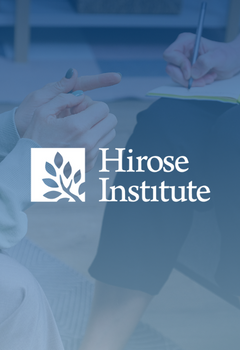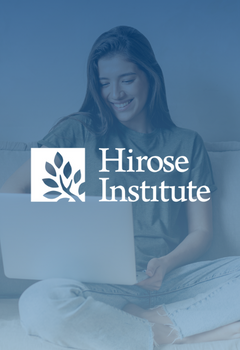Description
LIVE STREAM: November 13 – 15, 2024 from 8:00am – 3:30pm (Calgary, AB) Please adjust your start time according to your specific time zone.
ON-DEMAND: Recorded footage & course content (certificate, videos, quiz) will be available November 26 – December 16, 2024. Extensions cannot be granted under any circumstances.
Registration will close November 12, 2024.
Monday, November 13, 2024 | Day One
Inclusive Education: Strategies for Engaging Neurodiverse Learners
WORKSHOP 1: PRESENTED BY Caroline Buzanko, Ph.D., R. Psych
Unlock the full potential of every student by embracing neurodiversity in your classroom.
This dynamic workshop dives deep into the intricacies of neurodivergence, with a special focus on ADHD and autism, to unveil the unique strengths and challenges these learners bring to educational environments. Through a blend of engaging discussions, enlightening case studies, and practical exercises, you will learn how to create a classroom culture that recognizes and celebrates each student’s distinct contributions.
By the end of this training, you will have the tools to support all students effectively, enhancing educational outcomes across the board. Discover strategies to optimize learning and creating an inclusive space that encourages success for every learner.
 Shielding the Vulnerable: How to Protect their Heart and Minds
Shielding the Vulnerable: How to Protect their Heart and Minds
WORKSHOP 2: PRESENTED BY Eva de Gosztonyi, M.A.
For those who spend their days interacting with the young, be it in schools, group homes, daycares and in our own homes, we sometimes forget how vulnerable they are. Developing beings are entirely dependent on the care of the more mature. Yet so many common practices that we use, especially when behaviour is challenging, increase feelings of separation and vulnerability and inadvertently lead to other unanticipated problems, including mental-health issues. This session will focus on creating a better understanding of what our children need from us and on analyzing the pitfalls of some of our most commonly used interventions and interactions, including the use of praise, rewards, consequences, time-outs, democratic or child-led practices, and self-regulation. The presentation will then provide alternatives to these, as well as encouraging adults to find ways to support children in the most important task of all, helping their emotions to move through.
Optimizing our Understanding of ADHD & its Complex Nature
WORKSHOP 3: PRESENTED BY Caroline Buzanko, Ph.D., R. Psych
Attention deficit/hyperactivity disorder (ADHD) is a complex, heterogeneous disorder. When left unmanaged, ADHD is associated with long-term pervasive impairment across all areas of functioning. Recent models of ADHD have conceptualized ADHD as a disorder of behavioural inhibition, impairing executive functioning (EF), which lead to difficulties with self-regulation, organizing and planning behaviours, attention, and distractibility.
Given the substantial risk for students with ADHD, conducting valid and collaborative assessments, as well as developing effective interventions to promote student success, are critical to mitigate associated impairments and long-term risks. In this learning series, clinicians, educators, and families will develop a 360° understanding of ADHD to promote student success in all areas of functioning. Participants will learn more about the ADHD brain, how EF deficits manifest, self-regulation, effective teaching practices, and practical strategies to optimize the ADHD brain and the child’s overall social, emotional, and behavioural functioning. Practical case-base material is presented so participants can easily adapt strategies to meet the unique needs of their students.
Importantly, there are essential components to optimize assessments and interventions that are not widely known. This webinar is therefore vital for anyone working with children with ADHD. Participants will learn the critical steps to take to address the shortcomings of diagnostic assessments. Further, participants will learn imperative approaches to overcome the gaps that medications and behaviour modification cannot address.
When managed effectively, ADHD is an asset that supports individuals’ successes. There are so many positive qualities of ADHD that need to be celebrated, which are also addressed. By the end of the webinar, participants will have a renewed outlook on ADHD, and they will be better equipped to identify ADHD and design and implement effective intervention programs for children with ADHD.
Managing Behaviour Without Rewards
WORKSHOP 4: PRESENTED BY Eva de Gosztonyi, M.A.
When students have difficulty with their behaviours teachers are often advised to implement a reward system. However, developmental science and trauma research do not support these systems, warning of unwanted side-effects for children’s development. These systems are known to lose their effectiveness over time, are complicated to implement, and rarely result in long-term change. Of concern is that they can significantly affect the all-important child-adult attachment relationship, can increase anxiety even among the well-behaved, and can cause discouragement and a sense of shame for the student who cannot “do better” despite best intentions and a desire to earn rewards. This presentation will provide an analysis of what works and does not work, and why. Then effective alternatives to help manage behaviour in the classroom such as increasing the students’ desire to please their teacher, simple classroom alterations that can make behaving appropriately easier, and suggestions for how to respond when behaviour is challenging, will be described.
Tuesday, November 14, 2024 | Day Two
Over 20 Proven and Effective Brief Interventions for Children & Adolescents who are Oppositional, Disruptive and Defiant
WORKSHOPS 5 & 7: PRESENTED BY Caroline Buzanko, Ph.D., R. Psych
In today’s complex world, most children and adolescents experience ups and downs and engage in challenging behaviours from time to time. However, these behavioural become problematic when they occur frequently and begin to impair daily functioning. The prevalence of emotional and behavioural issues in young individuals has surged, often without adequate support, leading to potential long-term consequences for their well-being and development.
Early intervention and treatment are crucial to support the social, emotional, and behavioural wellbeing of children and adolescents and reduce future risks. However, many are unsure how to provide effective help, particularly in the heat of the moment.
Are you ready to make a profound difference in the lives of children and adolescents facing intense behavioural challenges? This dynamic workshop is a must for anyone seeking effective strategies to understand, prevent, and respond to oppositional, defiant, and disruptive behaviours.
Equip yourself with the knowledge and skills needed to transform challenging behaviours into opportunities for growth and success. Establish a solid foundation for addressing these behaviours effectively with practical strategies and interventions. Even more importantly, learn how to guide children and adolescents toward positive choices while promoting their resilience and emotional well-being.
Don’t miss this opportunity to make a positive impact on the lives of children and adolescents facing oppositional, defiant, and disruptive challenges. Join us for this comprehensive workshop and be the change they need.
Self-Regulation & Mindfulness for the Classroom: Practical Strategies and Interventions
WORKSHOPS 6 & 8: PRESENTED BY Varleisha D. (Gibbs) Lyons, Ph.D, OTD, OTR/L
Embark on an illuminating journey with sought-after occupational therapist Dr. Varleisha (Gibbs) Lyons, PhD, OTD, OTR/L, ASDCS, FAOTA, as she guides you through a transformative six-hour workshop experience. Dr. Lyons will delve into the foundations of selecting appropriate interventions for students exhibiting challenging behaviors, including hyperactivity, aggressiveness, self-stimulatory behaviors, and inattentiveness, among others.
In this workshop, participants will be ignited by the revelations uncovered in Dr. Lyons’ evidence-based presentation. Through a simplistic yet profound exploration, attendees will gain a deep understanding of the connection between neuroscience and classroom performance, particularly in terms of self-regulation and sensory processing.
Additionally, participants will be introduced to the Classroom Self-Regulation and Mindfulness program, a cutting-edge approach designed to empower educators and therapists in fostering self-regulation skills among students.
Throughout this immersive workshop, attendees will navigate the intricacies of neurobiology and its intersection with various sensory strategies, techniques, and equipment used when working with children facing challenges with self-regulation. Diagnoses such as sensory processing disorder, trauma, autism, and ADHD will be addressed, with treatment techniques including mindfulness, social skill programs, music and movement, and respiratory-based approaches thoroughly analyzed.
Join Dr. Varleisha (Gibbs) Lyons on this enlightening journey as we unlock the keys to promoting self-regulation and sensory processing in the classroom, leaving equipped with invaluable insights and actionable strategies for transformative change.
Wednesday, November 15, 2024 | Day Three
 From Chaos to Calm: Navigating Dysregulated Students to Calmer Emotional Waters
From Chaos to Calm: Navigating Dysregulated Students to Calmer Emotional Waters
WORKSHOP 9: PRESENTED BY Eboni Webb, Psy.D., HSP
This engaging and insightful session is designed for educators, school psychologists, counselors, and other professionals who encounter highly dysregulated students in educational settings. The course provides a deep dive into understanding emotional dysregulation in students, its underlying causes, and its impact on learning and behavior. Participants will explore evidence-based strategies and interventions to effectively support and manage dysregulated students, fostering a more inclusive and productive learning environment.
Through interactive discussions, case studies, and role-playing exercises, this session will equip attendees with the tools and understanding necessary to address the challenges posed by emotional dysregulation in the classroom, promoting positive educational outcomes for all students.
After the Meltdown: Proven & Effective Self-Regulation and Executive Functions Strategies
WORKSHOP 10 & 12: PRESENTED BY Kathy Morris, M.Ed.
This 6-hour course offers comprehensive training for professionals and caregivers working with children or adolescents diagnosed with Autism Spectrum Disorder (ASD), Attention-Deficit/Hyperactivity Disorder (ADHD), or other developmental disorders. Participants will learn practical strategies to manage meltdowns, tantrums, and challenging behaviors resulting from sensory overload and emotional dysregulation. The course emphasizes fostering positive behavior, enhancing self-regulation skills, and improving overall quality of life for individuals with neurodevelopmental differences.
Connection before Direction: The Art of Fostering Healthy Teacher-Student Attachment
WORKSHOP 11: PRESENTED BY Eboni Webb, Psy.D., HSP
In this dynamic and interactive session, participants will explore the critical role of attachment in the educational setting and its impact on both student development and teacher well-being. This course delves into the psychological principles of attachment theory, emphasizing practical strategies for fostering healthy, secure attachments between teachers and students. Participants will engage in evidence-based discussions, case studies, and experiential learning activities designed to enhance their understanding and application of attachment principles in the classroom. Through this session, educators, counselors, and school administrators will gain insights into creating a supportive and nurturing learning environment that promotes positive educational outcomes and emotional well-being for all students.









